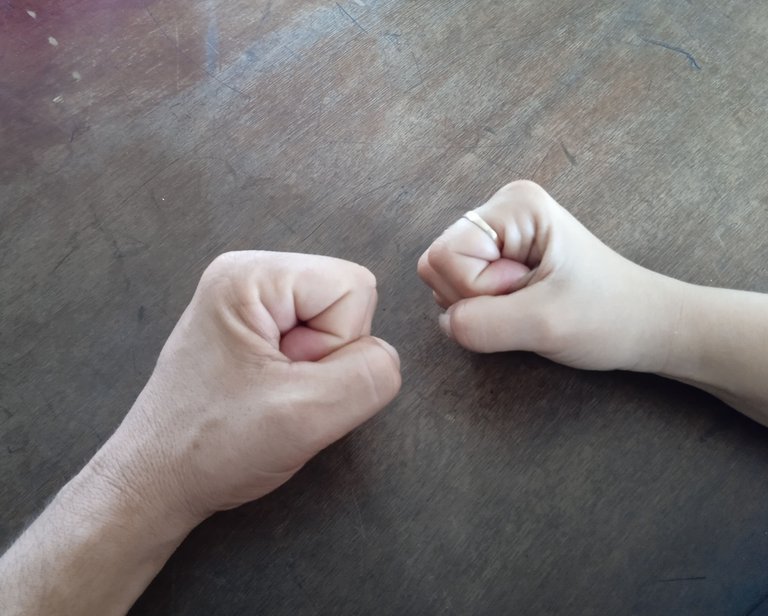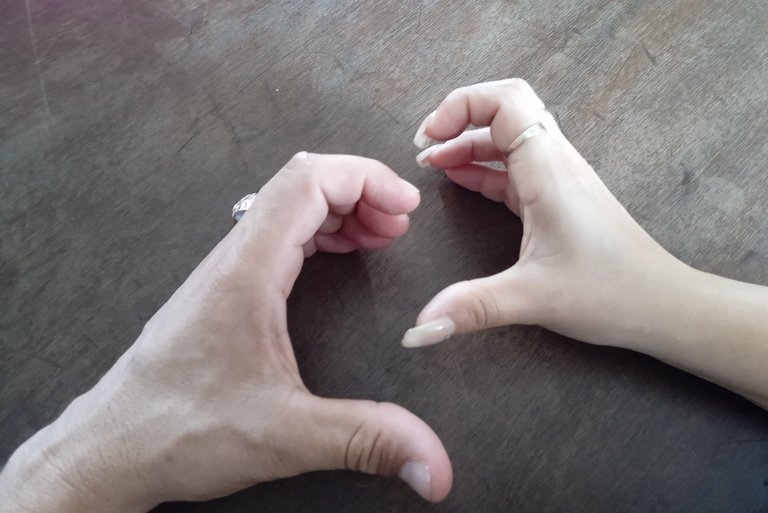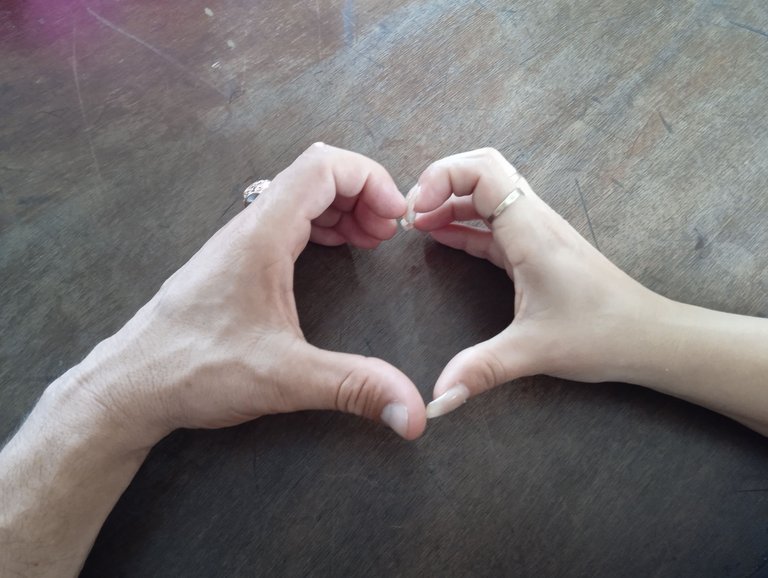
Hola amigas y amigos de Holos & Lotus. El poder inmenso que existe en la capacidad de perdonar constituye a mi juicio un indicador de bienestar psicológico para el ser humano. En ideas como esa pensaba mientras leía la iniciativa propuesta esta vez por @rosahidalgo.
Te has preguntado alguna vez si vale la pena perdonar a alguien que pudo hacerte mucho daño? Yo si. A ver, soy consciente de lo que yo interpreto como mucho daño quizá para otro es solo un leve rasguño. Entiendo que el dolor propio resulta el más grande de todos y que no pensamos en otro malestar que en el que sufrimos en carne propia.
El acto de perdon nos salva a nosotros mismos no al perdonado. Eso para mí es bien claro aunque no siempre fue así. Hubo un tiempo en que pensaba que perdonar era un acto de debilidad. Ahora me doy cuenta de que es un acto de fortaleza emocional.
Al perdonar no estamos liberando de la carga al otro sino que estamos liberando nuestra alma de resentimientos hacia el y hacia nosotros mismos. Piensalo por un momento. Cuando nos sentimos heridos, traicionados muchas veces en el fondo lo que se esconde es un sentimiento de víctima. Nos sentimos débiles.
Entonces, cuando decido perdonar a otra persona estoy demostrándome a mi mismo que tengo la capacidad para salir de esa situación. Sin justificar el mal comportamiento podemos reinterpretar la situación que vivimos. Fue el otro quien falló, yo estoy bien plantado sobre valores firmes.
Por supuesto, no llamo a asumir una posición de negar mi parte en el asunto. Las cosas que puede haber hecho de mejor modo. Eso me lleva a centrarme en mi, en mi comportamiento.

El tiempo y la experiencia me han ayudado a concientizar la necesidad de asumir la responsabilidad por los errores que cometemos. Me refiero a que si bien alguien nos causó daño, alguna vez nosotros tenemos nuestra parte en esa situación. O bien lo provocamos o simplemente lo permitimos.
Sin detalles importantes los que debemos concientizar. Nuestro modo de comportarnos influye en el otro. Así, si hemos sido víctima de alguna herida es probable que en nuestro modo de actuar existan fallas que debemos corregir.
Talvez permitimos determinado comportamiento o quizás confiamos en alguien que no merecía ese privilegio. Si bien nadie tiene el derecho de hacer daño a otro, creo que debemos elegir bien cada persona con quién nos relacionamos y el espacio que le damos en nuestra vida.
Solo asumiendo una posición autocrítica podemos aprender lo necesario de esa situación. Esto nos facilitará no volver a sufrir el mismo tipo de experiencia negativa. También puede fortalecernos ya que conociéndonos a nosotros mismos estamos en mejores condiciones de establecer límites sanos.
Quizá la dificultad en el acto de perdonar este el hecho de que no entendamos que esto puede ser un nueva comienzo. Si se parte de reconocer que áreas tenemos para mejorar y como podemos lograrlo, de considerar esa etapa como un ciclo cerrado y la posibilidad de dejar entrar nuevos regalos a nuestra vida con un mayor aprendizaje adquirido.
Un amigo me decía medio en broma y medio en serio que uno no cometió con su segunda pareja los errores que con la primera. Y así sucesivamente. Perdonar al otro significa para mí otorgarle el legítimo derecho de haberse equivocado, así como nosotros exigimos ese mismo derecho.
Además, desde un componente místico me gusta pensar que la vida te quita de enfrente todo lo que te estanca. Muchas veces lo hace de una forma dura pero es que si no es así no salimos de esa situación. !Reinterpretar a nuestro favor lo que nos sucede también se vale!
Por otro lado, perdonar es un acto de madurez. Me ha pasado que he estado en situaciones dolorosas y concentrado solo en mi papel de víctima no he concientizado los móviles que llevaron a la otra persona a comportarse así.
Por ejemplo, en relaciones de pareja, cuando alguien ya no desea continuar a nuestro lado eso nos duele. Puede que sintamos despecho, que incluso deseemos infelicidad a la otra persona y luego, cuando el tiempo enfría la sangre y la vida les regala la oportunidad de hablar desde lo sano uno comprende la posición de la otra persona.

Ese es un comportamiento asumido desde la madurez. Llegar a establecer si se quiere una relación de amistad con alguien que fue parte importante de nuestras vidas por un rato y con quién ya no funcionaba una relación de pareja. Sin embargo, el vínculo sigue ahí, es parte de nosotros y ha contribuido a nuestro desarrollo
La cuestión está en que podemos elegir perdonar o seguir guardando rencor. Es opcion personal pero lo que si está claro es que cualquiera de los casos la influencia sobre nuestra estará ahí.
Bueno amigos, agradecido de su compañía hasta el final te dejo un abrazo de amigo.
Texto traducido al inglés por DeepLTranslste. Fotos tomadas con mi teléfono Xiaomi Redmi.
English Version

Hello friends of Holos & Lotus. The immense power that exists in the ability to forgive constitutes in my opinion an indicator of psychological well-being for the human being. I was thinking about ideas like that while reading the initiative proposed this time by @rosahidalgo.
Have you ever wondered if it is worth forgiving someone who could have hurt you a lot? I have. Let's see, I am aware that what I interpret as a lot of damage maybe for someone else is just a slight scratch. I understand that one's own pain is the greatest of all and that we do not think of any other discomfort than the one we suffer in our own flesh.
The act of forgiveness saves us, not the forgiven. This is very clear to me, although it was not always so. There was a time when I thought that forgiveness was an act of weakness. Now I realize that it is an act of emotional strength.
By forgiving we are not freeing the other person from the burden but we are freeing our soul from resentment towards him and towards ourselves. Think about it for a moment. When we feel hurt, betrayed, often deep down what is hidden is a feeling of victimhood. We feel weak.
So, when I decide to forgive another person I am proving to myself that I have the capacity to get out of that situation. Without justifying the bad behavior, we can reinterpret the situation we are in. It was the other person who failed, I am well planted on firm values.
Of course, I do not call to assume a position of denying my part in the matter. The things I could have done better. That leads me to focus on me, on my behavior.

Time and experience have helped me to become aware of the need to take responsibility for the mistakes we make. I mean that even if someone caused us harm, sometime we have our share in that situation. Either we provoked it or we simply allowed it.
There are no important details that we should be aware of. The way we behave influences the other. Thus, if we have been the victim of an injury, it is likely that in our way of acting there are flaws that we must correct.
Perhaps we allowed certain behavior or perhaps we trusted someone who did not deserve that privilege. While no one has the right to hurt another, I believe that we must choose well each person with whom we relate and the space we give them in our lives.
Only by assuming a self-critical position can we learn what we need to learn from that situation. This will make it easier for us not to suffer the same type of negative experience again. It can also strengthen us because by knowing ourselves we are in a better position to establish healthy boundaries.
Perhaps the difficulty in the act of forgiveness is the fact that we do not understand that this can be a new beginning. If we start by recognizing what areas we have to improve and how we can achieve it, to consider that stage as a closed cycle and the possibility of letting new gifts into our life with a greater acquired learning.
A friend of mine used to tell me half jokingly and half seriously that one did not make the same mistakes with his second partner as he did with his first. And so on. For me, forgiving the other person means giving them the legitimate right to have made a mistake, just as we demand the same right.
Also, from a mystical component I like to think that life takes away from you everything that stagnates you. Many times it does it in a hard way, but if it doesn't, we don't get out of that situation. Reinterpreting what happens to us in our favor is also valid!
On the other hand, forgiveness is an act of maturity. It has happened to me that I have been in painful situations and focused only on my role as a victim, I have not been aware of the motives that led the other person to behave that way.
For example, in relationships, when someone no longer wants to continue by our side, it hurts us. We may feel spite, we may even wish unhappiness to the other person and then, when time cools the blood and life gives you the opportunity to talk from a healthy point of view, we understand the other person's position.

This is a behavior assumed from maturity. To establish a friendship relationship with someone who was an important part of our lives for a while and with whom a couple relationship no longer worked. However, the link is still there, it is part of us and has contributed to our development.
The point is that we can choose to forgive or continue to hold a grudge. It is a personal choice but what is clear is that in either case the influence on us will be there.
Well friends, grateful for your company until the end I leave you a friend's embrace.
Text translated into English by DeepLTranslste. Photos taken with my Xiaomi Redmi phone.
Saludos
@tipu curate 4
Upvoted 👌 (Mana: 31/71) Liquid rewards.
Hola. Muchas gracias por su apoyo.